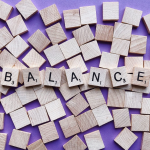Are you aware of the concept of the three gates? Most simply, before you speak or – in my case, write – let your words pass through three gates. Is it true? Is it kind? Is it necessary?
Harm Reduction
In the past week, two Senators questioned a planned study by the FDA on long-acting opioids. They write, “This study is intended to specifically look at the use of EERWs [enrichment enrollment randomized withdrawal] to approve new opioids.” That is not all they got wrong.
“Oregonians voted in November 2020 to stop incarcerating people for using drugs unapproved by the federal government and instead direct resources to harm reduction programs. The pandemic got in the way. Now, while this project is still in its infancy, a group of Oregonians wants to replace something that hasn’t had a chance to work with something that we KNOW hasn’t and won’t work.”
Much has been written about Diversity, Equity, and Inclusion (DEI). Many who are adamant about diversity, especially in regulatory science, are less enthused over equity. I’ve had a few thoughts about both.
The Cochrane Library recently completed a review of “the comparative benefits, harms and tolerability of different smoking cessation pharmacotherapies and e-cigarettes, when used to help people stop smoking tobacco.” Spoiler alert: as we have shown, e-cigarettes are a significant aid in reducing dependency on smoking tobacco.
A recent study of young, deceased athletes exposed to repeated head trauma revealed that 41% suffered severe Chronic Traumatic Encephalopathy (CTE), leading to their death or severe neuropsychological damage. If serious sports injuries are so prevalent, why aren’t we banning the ball?
Is there anything more annoying than walking into a hotel room and seeing the signs to “Save the Environment” by not having the hotel wash your dirty towels? Why should you feel guilty about wanting clean towels after paying high prices for the privilege of staying at their establishment? This was the very situation that led to an essay in 1986 in which the term greenwashing was used for the first time.
Remember the Marshmallow experiment? That's the one to see how long a child could hold out against the temptation to eat a marshmallow, correlated with an enhanced ability at delayed gratification and later adult success. A new study looks at children with different behaviors, oppositional and antisocial. How did they fare?
My background is in public health, and I love the idea of making healthcare accessible for everyone, but health coaching, exemplified by the Institute for Integrative Nutrition (IIN), in its current state, is not healthcare. It’s the Wild West of healthcare, and we need a sheriff.
If you’ve been following the news, you’ll have noticed that Japan started discharging its tritiated water into the ocean last week, over the objections of China and South Korea and with the concurrence of the International Atomic Energy Agency. I noticed there were a few comments on my recent ACSH piece on this matter and thought I’d address a few of the points raised in the comments.
Evidence-based medicine specifically seeks evidence for treatments, recommendations, and practice guidelines. However, while the spirit of evidence-based medicine is to be based on ethical and scientifically rigorous research, in practice, it is often simply shortened to “Is there any evidence at all?”
A new study suggests that 25% of “marginalized” patients – Black, Hispanic, or insured by Medicaid – were “jumped over” by the less ill, or those arriving later in emergency departments. Are these disparities the result of the social construct of race? Could it be a “racism or classism” of institutions or personnel? Or could the term disparity be used to by authors to jump the publication line – to sooner rather than later?











